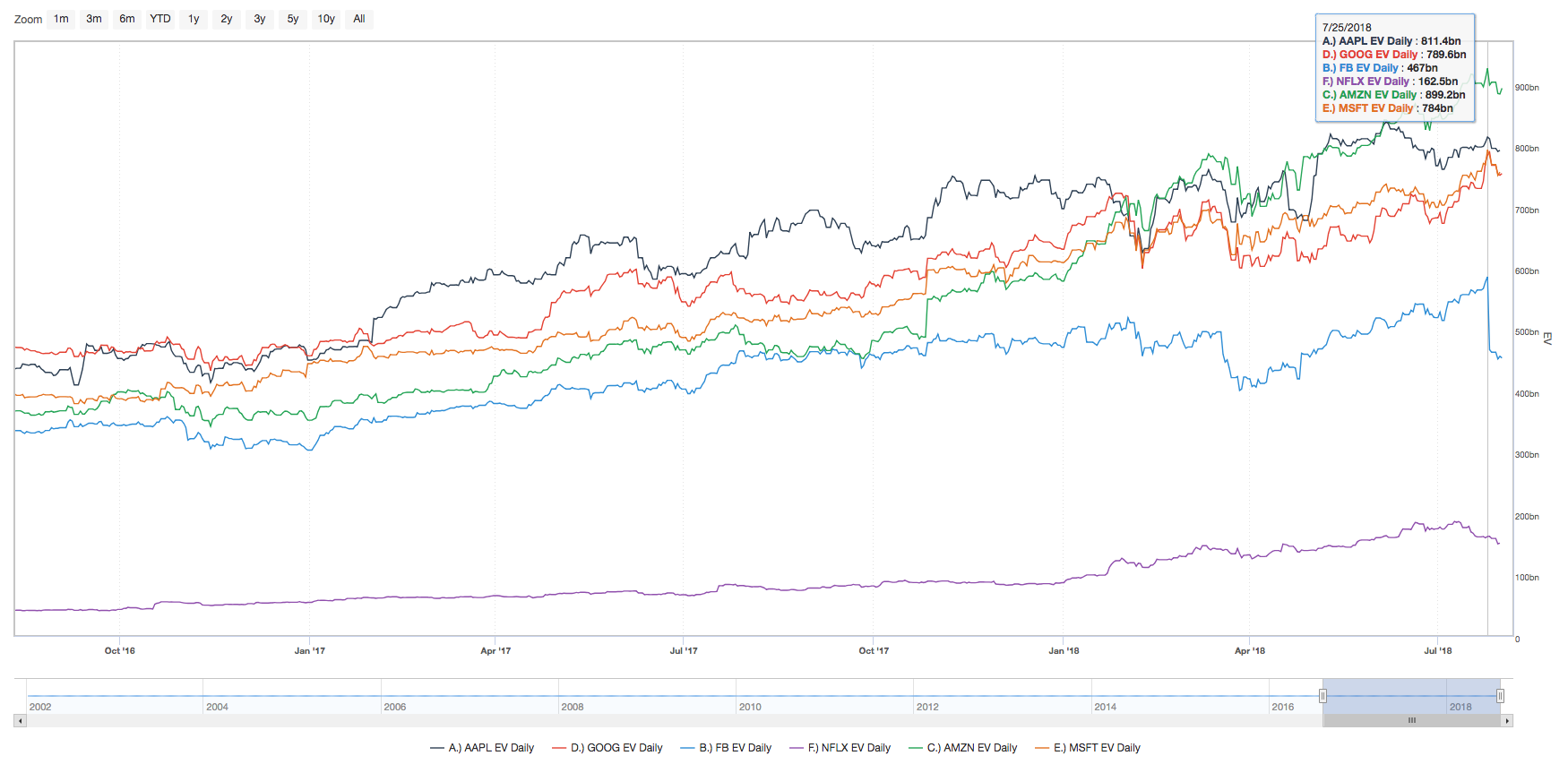Today, Apple (APPL) became the first $1 trillion public U.S. company. Its stock jumped 2.8 percent to $207.05 (as of 9:15 a.m. Pacific), taking its gain to 9 percent since this Tuesday, when it released its latest quarterly earnings. Apple management reported higher than expected quarterly results, and mentioned that it bought back $20 billion of its own shares.
[activistinvesting]
Q2 hedge fund letters, conference, scoops etc
But in spite of all of the press coverage around this major milestone, Apple is not even the most valuable company in the world. That distinction belongs to fellow tech giant Amazon. How can that be, when Amazon’s market capitalization is only a ‘meager’ 887 billion? The key lies in the metric used to measure a company’s value.
Most analysts use “Enterprise Value” rather than market capitalization to measure a company’s value because it accounts for the total operating value of the firm and adjusts for the capital structure of the firm (with equity, debt, and cash). A large part of Apple’s equity value is in the hoard of cash on its balance sheet, which doesn’t reflect the ongoing value of the company. They could use that cash to issue a dividend or buyback shares, but it wouldn’t change how much the actual company is worth based on its potential future profits. In fact, Apple typically buys back shares every quarter.
Amazon passed Apple in enterprise value back in June during its meteoric rise and is now worth $80B more than Apple. Amazon and Apple are just two of the tech giants (dare we say “conglomerates”) that now make up the most valuable companies in the world. We took a closer look at the rest of the tech giants and plotted their enterprise values over time using Sentieo’s Plotter tool.
Tech Giants Enterprise Value
Interactive Chart: http://snt.io/c8B2JRXn2
Looking at the chart, we can see that Apple (black line) and Google (red line) had been leading the pack since 2016. However, around February of this year, Amazon surpassed them both to become the most valuable, and after some back and forth, broke away at the beginning of June.
Facebook (blue line) and Netflix (purple line), while also members of the “FANG” group, actually have much lower enterprise value that Amazon and Apple.
Regardless of Enterprise Value or Market Cap, Tech Is Taking Over
The more important thing to note is that these tech giants are taking the stage as the world’s most valuable companies, both in enterprise value and market cap. In July, CNBC reported that the majority of the returns this year on the S&P 500 index have from tech giants. The tech companies in the table below are responsible for 99 percent of the S&P 500 returns this year, meaning the rest of the S&P remained almost flat. (Data as of July 10, 2018)
This hasn’t been the case since the last dot-com boom in the 1990s, when Cisco was anticipated to become the first trillion dollar company. We plotted a few tech and oil companies to look at how market leadership has changed over the past 10 years.
The large grey spike in 2008 represents PetroChina’s peak market cap.
In 2006, Microsoft (blue line) had the fourth largest market cap but was still eclipsed by Exxon (orange), GE (black), and PetroChina (gray) — and closely followed by Total (teal).
In 2011, Apple (red) came in third place to Exxon and PetroChina.
But in 2016, Apple (red), and Microsoft (blue), Amazon (purple) and Facebook (green) all took the top 4 highest market cap spots, dissimilar to the situation today.
Market Cap: Tech vs. Oil
Interactive Chart: http://snt.io/aHB2JPRNV
Based on their monstrous market share, we anticipate that the tech giants will rule for a while — unless another unexpected dot-com crash occurs.
Article by Denise Martinez, Sentieo


